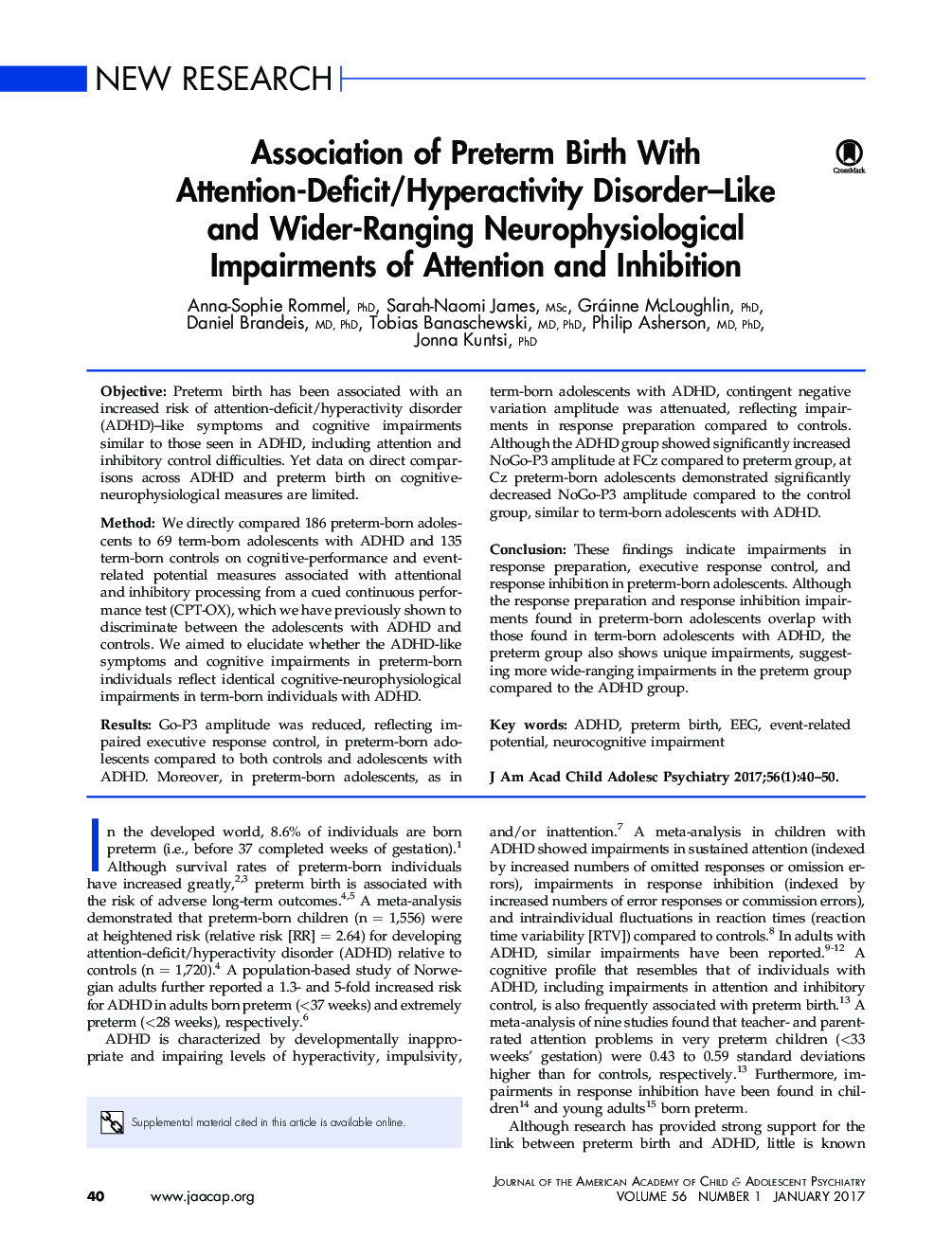| Article ID | Journal | Published Year | Pages | File Type |
|---|---|---|---|---|
| 4931593 | Journal of the American Academy of Child & Adolescent Psychiatry | 2017 | 11 Pages |
ObjectivePreterm birth has been associated with an increased risk of attention-deficit/hyperactivity disorder (ADHD)-like symptoms and cognitive impairments similar to those seen in ADHD, including attention and inhibitory control difficulties. Yet data on direct comparisons across ADHD and preterm birth on cognitive-neurophysiological measures are limited.MethodWe directly compared 186 preterm-born adolescents to 69 term-born adolescents with ADHD and 135 term-born controls on cognitive-performance and event-related potential measures associated with attentional and inhibitory processing from a cued continuous performance test (CPT-OX), which we have previously shown to discriminate between the adolescents with ADHD and controls. We aimed to elucidate whether the ADHD-like symptoms and cognitive impairments in preterm-born individuals reflect identical cognitive-neurophysiological impairments in term-born individuals with ADHD.ResultsGo-P3 amplitude was reduced, reflecting impaired executive response control, in preterm-born adolescents compared to both controls and adolescents with ADHD. Moreover, in preterm-born adolescents, as in term-born adolescents with ADHD, contingent negative variation amplitude was attenuated, reflecting impairments in response preparation compared to controls. Although the ADHD group showed significantly increased NoGo-P3 amplitude at FCz compared to preterm group, at Cz preterm-born adolescents demonstrated significantly decreased NoGo-P3 amplitude compared to the control group, similar to term-born adolescents with ADHD.ConclusionThese findings indicate impairments in response preparation, executive response control, and response inhibition in preterm-born adolescents. Although the response preparation and response inhibition impairments found in preterm-born adolescents overlap with those found in term-born adolescents with ADHD, the preterm group also shows unique impairments, suggesting more wide-ranging impairments in the preterm group compared to the ADHD group.
